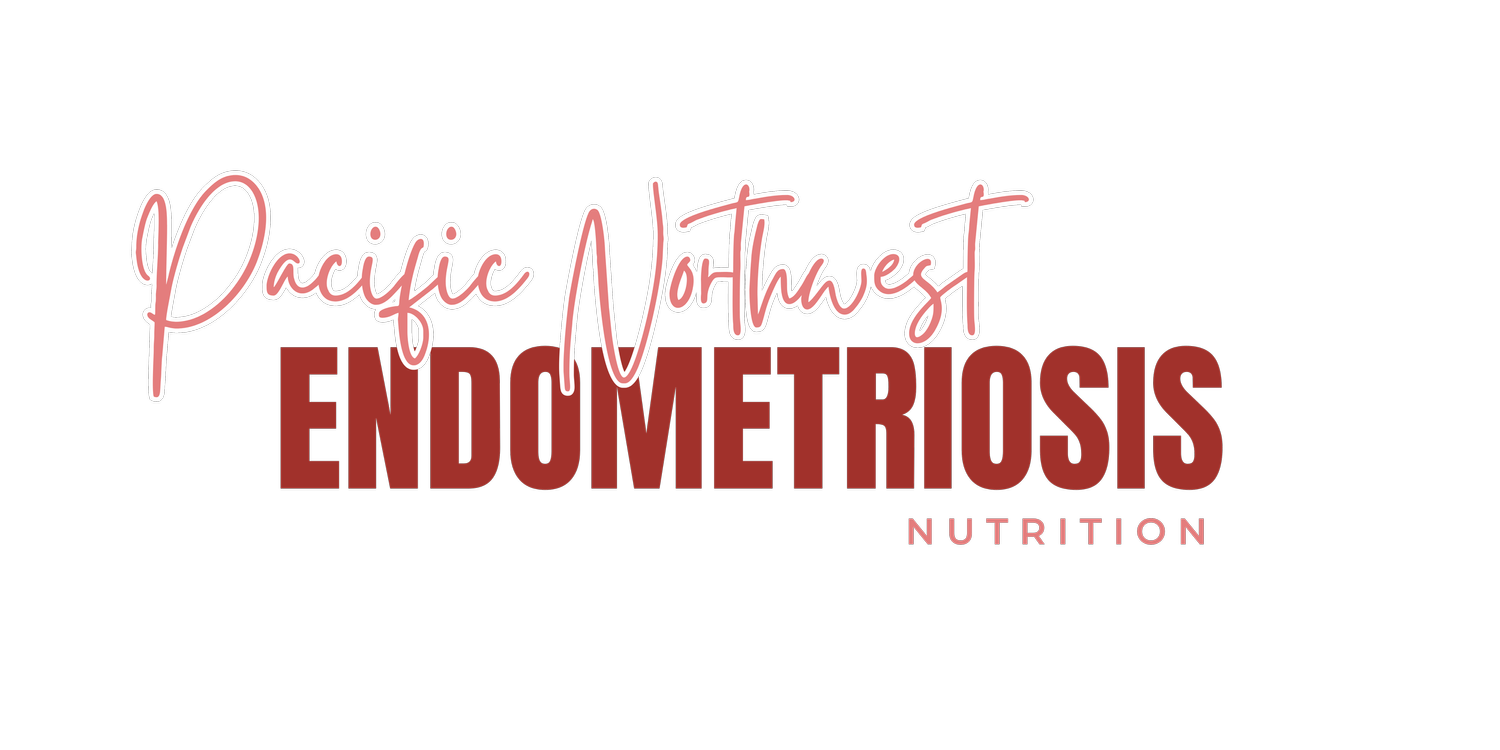Berberine: A Potential Ally in Endometriosis Management?
As a registered dietitian specializing in endometriosis, I understand the daily struggles you face. Painful periods, cramping, and inflammation can significantly impact your quality of life. In my Seattle practice, serving clients across Washington, Oregon, Idaho, California, and beyond, I take a non-restrictive approach, focusing on nutrition and lifestyle interventions to manage endometriosis symptoms.
One supplement gaining traction for its potential health benefits is berberine. Let's explore berberine: what it is, how it works, and its exciting potential as a tool for endometriosis symptom management.
What is Berberine?
Berberine is a naturally occurring compound in several plants, including goldenseal, barberry, Oregon grape root, and Berberis vulgaris. Traditionally used in Ayurvedic and Chinese medicine, berberine has gained modern scientific interest for its diverse health benefits.
How Does Berberine Work?
Berberine works on a cellular level, influencing various pathways. Here are some fundamental areas that berberine may be supportive of:
Anti-inflammatory: Berberine exhibits anti-inflammatory properties, potentially reducing chronic inflammation associated with endometriosis.
Blood sugar regulation: Studies suggest berberine may improve insulin sensitivity and blood sugar control, which can benefit overall health.
Hormone modulation: Berberine might influence estrogen metabolism, potentially impacting endometriosis development and progression.
Microbiome modulation: Emerging research suggests berberine may influence gut bacteria composition, potentially impacting overall health and inflammation.
It is important to note that all of these areas need further research. Berberine is not FDA-approved for any condition.
Berberine and Endometriosis:
While research on berberine specifically for endometriosis is ongoing, one preliminary study shows promise:
Reduced Endometrial Cell Growth: A study published in the journal Molecular Medicine Reports (Gu & Zhou,2021) investigated berberine's effects on endometrial stromal cells, which play a role in endometriosis development. The study found that berberine inhibited these cells' proliferation, invasion, and migration, suggesting its potential to reduce endometrial tissue growth outside the uterus.
Important Considerations
While the potential benefits of berberine for endometriosis are intriguing, it's crucial to consider these points:
Limited Research: More clinical trials are needed to confirm berberine's efficacy and optimal dosage for endometriosis management.
Individualized Approach: Berberine may only be suitable for some. It's essential to discuss it with your doctor or a registered dietitian specializing in endometriosis to determine if it's a safe and appropriate option for your situation.
Potential Side Effects: Berberine can cause digestive side effects like cramping, diarrhea, and constipation, especially at high doses.
Unsafe for Pregnancy and Breastfeeding: Berberine can cross the placenta and be transferred through breastmilk and should not be taken by people who are pregnant or breastfeeding.
Medication Interactions: Berberine has a long list of medication interactions and should be taken under the supervision of a medical professional.
Not Regulated: The FDA doesn't review or regulate berberine or other dietary supplements. That means no one regulates what's sold to ensure its safety and effectiveness. Look for an NSF-certified label when purchasing berberine. The NSF certification mark demonstrates that the applicable product or operation meets the stringent standard requirements. For more information, visit nsf.org.
Separate dosing: It is generally recommended to take 3 separate doses before meals daily. Many sources suggest taking 500 mg three times daily.
How Can a Registered Dietitian Help?
As an endometriosis dietitian, I can guide you through a comprehensive approach to managing your symptoms.
Here's how I can help:
Personalized Nutrition Plan: I can help you create a non-restrictive nutrition and lifestyle plan that meets your needs and identifies foods that might trigger your endometriosis symptoms. Learn more about an evidence-based nutrition approach for endometriosis management here.
Lifestyle Guidance: We'll explore stress management techniques, sleep hygiene practices, and exercise routines that can improve your overall well-being and fit into your daily schedule.
Supplement Review: I can review your current supplement regimen and discuss the potential role of berberine, considering your individual needs and medical history.
Communication Bridge: I can collaborate with your healthcare providers to ensure a seamless approach to managing your endometriosis.
The Takeaway
Berberine may be a potential tool for managing endometriosis symptoms, particularly its anti-inflammatory properties. However, more research is required. If you're considering berberine, it's crucial to connect with a healthcare professional to discuss its suitability for you.
Remember, when medically appropriate, a holistic approach encompassing nutrition, lifestyle modifications, and potential supplements like berberine can empower you to take charge of your endometriosis and improve your quality of life.
Live a Vibrant Life Despite Endometriosis
Don't let endometriosis define you. By working with an endometriosis dietitian, you can develop a personalized plan to manage your symptoms and reclaim your life. In my Seattle practice, I support people with endometriosis virtually across Washington, Oregon, Idaho, and California. Let's create a future where you thrive, not just survive, with endometriosis.
This blog post is intended to educate and inform and does not serve as medical advice or nutrition therapy. It is important to consult with your care team when adding a supplement to your health regimen.
Sources:
Gu Y, Zhou Z. Berberine inhibits the proliferation, invasion and migration of endometrial stromal cells by downregulating miR‑429. Mol Med Rep. 2021 Jun;23(6):416. doi: 10.3892/mmr.2021.12055. Epub 2021 Apr 13. PMID: 33846796; PMCID: PMC8025458.
Och A, Podgórski R, Nowak R. Biological Activity of Berberine—A Summary Update. Toxins. 2020; 12(11):713. https://doi.org/10.3390/toxins12110713
Zhi Wang, Kexin Nie, Hao Su, Yueheng Tang, Hongzhan Wang, Xiaohu Xu, Hui Dong,
Berberine improves ovulation and endometrial receptivity in polycystic ovary syndrome,
Phytomedicine, Volume 91, 2021,153654, ISSN 0944-7113, https://doi.org/10.1016/j.phymed.2021.153654.
Zhang L, Wu X, Yang R, Chen F, Liao Y, Zhu Z, Wu Z, Sun X, Wang L. Effects of Berberine on the Gastrointestinal Microbiota. Front Cell Infect Microbiol. 2021 Feb 19;10:588517. doi: 10.3389/fcimb.2020.588517. PMID: 33680978; PMCID: PMC7933196.


